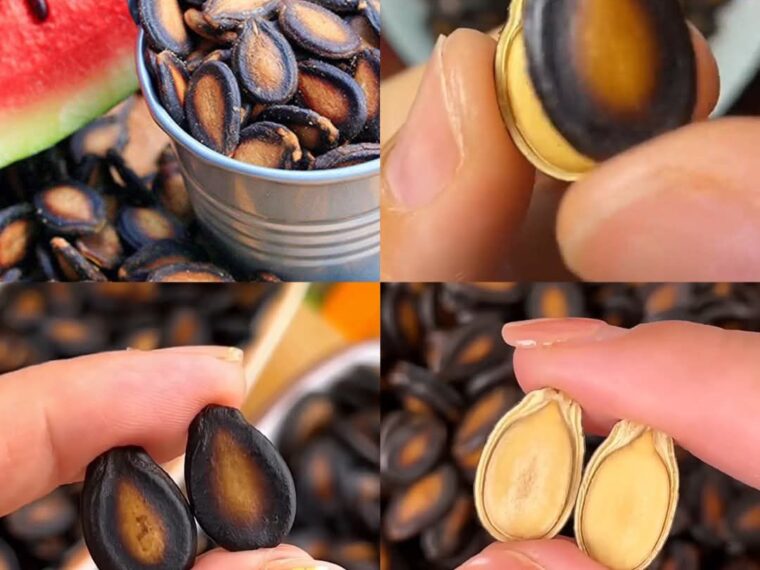Watermelons are a delicious and hydrating summer fruit, but most people overlook one of their most potent parts — the seeds. While many of us are used to spitting them out or buying seedless varieties, watermelon seeds are actually small nutritional powerhouses packed with essential nutrients, antioxidants, and health-promoting compounds.
In this article, we’ll uncover the amazing benefits of watermelon seeds and explain why you should consider saving and consuming them.
1. Rich in Protein
Watermelon seeds contain about 28–30 grams of protein per cup (about 100g) when dried and shelled. This includes essential amino acids like arginine, which is important for heart health, and glutamic acid, which supports brain function. They’re a great plant-based protein source, especially useful for vegetarians and vegans.
2. Excellent Source of Magnesium
Magnesium is a crucial mineral for over 300 enzymatic reactions in the body. Just a handful of watermelon seeds (about 4 grams) can offer up to 21 mg of magnesium, which supports:
- Nerve and muscle function
- Healthy blood pressure
- Bone development
- Energy production
3. Promote Heart Health
Watermelon seeds are rich in healthy fats, particularly monounsaturated and polyunsaturated fatty acids, which help reduce bad cholesterol (LDL) levels. They also contain magnesium and iron — two nutrients known to support cardiovascular function and improve blood circulation.
4. Support Healthy Metabolism
These seeds are rich in zinc, a mineral essential for metabolism regulation. Zinc also plays a role in hormone production, immune system function, wound healing, and digestion.
5. Great for Skin and Hair
Watermelon seeds are loaded with antioxidants, including vitamin E and fatty acids that nourish the skin, reduce signs of aging, and fight inflammation. Zinc and magnesium also help reduce acne and promote collagen production. Additionally, the protein content supports keratin formation, enhancing hair growth and strength.
6. Boost the Immune System
The presence of iron, magnesium, and zinc in watermelon seeds helps strengthen the immune system. Zinc, in particular, is known to reduce inflammation and enhance the body’s ability to fight infections and heal wounds.
7. Aid in Blood Sugar Control
Some studies suggest that magnesium-rich foods — like watermelon seeds — may help regulate blood sugar levels and improve insulin sensitivity, which is beneficial for people with type 2 diabetes or those at risk.
8. Improve Digestion
Watermelon seeds are a good source of dietary fiber, especially when consumed whole and roasted. Fiber helps maintain a healthy digestive system, promotes regular bowel movements, and may prevent constipation.
How to Eat Watermelon Seeds
To get the most out of watermelon seeds, they should be:
TO CONTINUE READING THE ARTICLE PLEASE SEE PAGE 2




